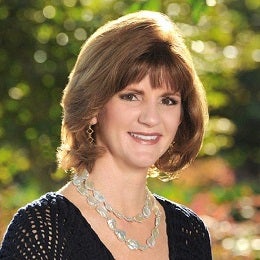Our People

Kimberly Cress, MD
Kimberly Cress, MD, has been in private practice in psychiatry since 2000. A graduate from the University of Texas Health Science Center, San Antonio Medical School, Dr. Cress’ vast experiences include treating patients with treatment refractory depression, anxiety disorders, and bipolar disorders at the Mood Disorder Center at Baylor College of Medicine. She was also involved with a variety of clinical trials and was a coauthor in several journal articles.
After finding patients were still struggling with depression and anxiety despite numerous medication trials and/or therapies, Dr. Cress chose to incorporate transcranial magnetic stimulation (TMS) therapy as a treatment option to help patients regain the quality of life they deserved—without the unwanted side effects. Dr. Cress founded the TMS Serenity Center in April 2010 and has treated patients with TMS therapy since then, administering over 12,000 treatments. She has completed Harvard Medical School’s Intensive Course in Transcranial Magnetic Stimulation and Transcranial Direct Current Stimulation, along with completing courses at Duke University in transcranial magnetic stimulation.
Now, at the TMS Serenity Center, Dr. Cress is at the forefront of the field of TMS and neuromodulation and always seeking opportunities to grow and educate patients and colleagues on TMS. Dr. Cress is a member of the Clinical TMS Society and serves on the board of directors. She also serves as outreach committee chair, helping to drive the knowledge and education of TMS therapy.
Dr. Cress has had several posters accepted for presentation at the American Psychiatric Association and Clinical TMS Society Annual Meetings. Dr. Cress attended the 1st International Brain Stimulation Conference in Singapore in March 2015 and was one of few who spoke on implementation of TMS Therapy in routine clinical practice in the US. Dr. Cress, alongside other TMS pioneers, spoke about transcranial magnetic stimulation at the 169th American Psychiatric Association Annual Meeting, becoming one of the first groups to be invited to present on TMS therapy.
Dr. Cress’ goal is to tailor each person’s care to live life without a mental illness. “Treating depression is an art as well as a science. It is important to listen to each person and their history to determine the most effective depression treatment plan. Why should anyone settle for just feeling ‘okay’?”
